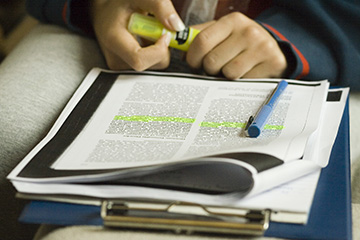
Research papers are an important currency in academia, where “publish or perish” is still a way of life. This has made authorship—both being included as a paper author, and being high in the list of author names—all the more essential for advancement in science. Yet just how authorship is determined among those who participated in research is often unclear. This ambiguity can lead to disputes about who should be included as an author—and in what order.
Now, a research team in North America reports that women researchers encounter authorship disputes more frequently than their male counterparts (Sci. Adv., doi: 10.1126/sciadv.abe4639). The team’s survey analysis suggests that the pattern is more pronounced in the natural sciences and engineering, where the gender gap is wider compared with fields such as medical and social sciences.
Gender disparities in academia
The recent effort stemmed from previous work published in Nature in 2013, says Chaoqun Ni, the new study’s first author and an information scientist at the University of Wisconsin–Madison, USA. The previous study’s authors, including Ni, confirmed a persistent global gender imbalance in number of publications. Other studies have shown that women in academia face bias when seeking a job, getting paid, pursuing funding and getting recognition after winning an award.
To understand why men publish more papers than women, the team decided to zoom in on one potential cause—authorship disputes. The survey of more than 5,500 researchers who published at least one collaborative paper revealed that women were 1.38 times more likely to experience a dispute over whose name should be included as an author and 1.25 times more likely to experience a dispute over the order of authors’ names.
And this is despite women’s effort to democratize the process, Ni says. The survey analysis showed that when discussion of authorship happens earlier in the research process, researchers encounter disputes less often. However, even though more women said they start to discuss authorship earlier than men do, they still reported that they experience authorship disputes more often.
Toward a better future
Though the team did not deeply investigate the cause of gender disparity in authorship disputes, Ni says the survey shows that men tend to devalue the types of work that women are often associated with, such as technical work.
Another suspected reason is that there may typically be fewer women in a given field. The inequality in gender representation can create power dynamics, possibly leading to more authorship disputes for women, Ni says, though there is not yet empirical evidence for this hypothesis.
Ni says funding agencies and scientific societies can set clear guidelines on how to determine the authorship, which can mitigate future disputes. However, she thinks cultural change is imperative when it comes to discussing solutions.
“Science is kind of a self-regulating system, right?” Ni says. “To build a fair and equitable system of science … [we need] the collective efforts from every aspect of scientific workforce.”
